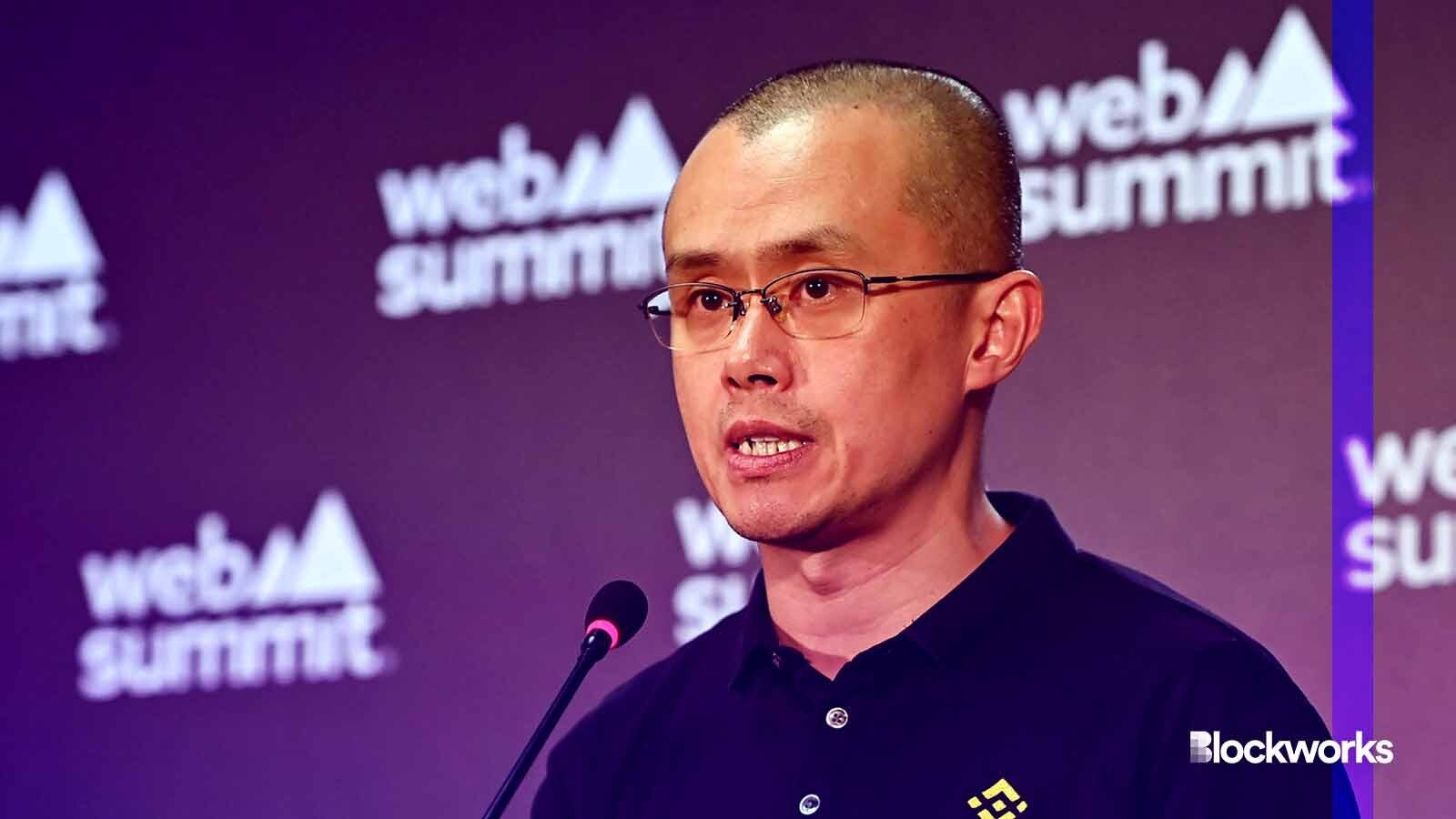Binance’s Zhao ordered to stay in US for now
Federal judge puts pause on plan to allow Zhao to return to UAE prior to sentencing, court filing shows

Former Binance CEO Changpeng Zhao | "Changpeng Zhao"/Web Summit (CC license) modified by Blockworks
A federal judge wants Binance founder Changpeng Zhao to stay in the US as he awaits sentencing. At least for now.
Zhao and the exchange he founded pleaded guilty to violating US anti-money laundering laws last week.
The US Department of Justice detailed $4.3 billion in fines and forfeitures for Binance during a Nov. 21 press conference. Attorney General Merrick Garland alleged at the time that the company’s compliance team knew the exchange was used for money laundering and illicit financial activities.
Zhao was released on a $175 million bail bond and is slated to be sentenced in February. He is a citizen of the United Arab Emirates and Canada.
Magistrate Judge Brian Tsuchida proposed allowing Zhao to return to the UAE to be with his partner and three children prior to sentencing — finding he was at “no risk of flight,” according to a Nov. 23 court filing.
Read more: Here are the details of Binance and Changpeng Zhao’s plea deal
But US District Judge Richard Jones put a pause on Zhao’s return to the UAE “until such time as this court resolves the government’s motion for review,” according to a Monday disclosure.
The Binance founder, as part of pleading guilty, agreed to step down from the company’s CEO post — naming Richard Teng as his successor. Teng was Binance’s head of regional markets and previously spent time in regulatory roles at the Abu Dhabi Global Market and the Monetary Authority of Singapore.
Teng claimed in a blog post Monday that Binance is “stronger today than we have ever been.” He doubled down on previous comments he made on X that the company maintains “robust revenues and profits” and that user assets are backed one-to-one.
“As an industry, we require more focus than ever on collaborating with policymakers,” Teng wrote. “Only then may we effectively contribute to the development of a globally harmonized regulatory framework that will foster innovation while providing critical consumer protections.”
Get the news in your inbox. Explore Blockworks newsletters:
- The Breakdown: Decoding crypto and the markets. Daily.
- 0xResearch: Alpha in your inbox. Think like an analyst.






